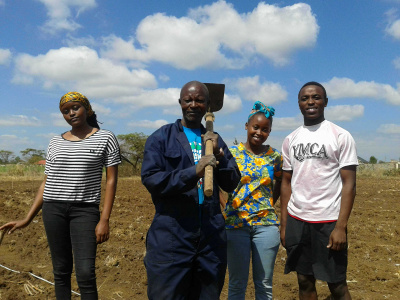
The AU Joint Ministerial of Agriculture and Trade: Preparations and Key Messages
Addis Ababa, 26-30 November 2012
Background
Building on the 2012 AU Heads of State Summit on enhancing regional integration, the theme for this Joint Ministerial is “Boosting Intra-African Trade: a key to agricultural transformation and ensuring food and nutrition security”. This is a very welcome move, since Africa needs higher levels of intra-regional trade to achieve food security goals and economic growth.
Today, Africa as a continent has the lowest levels of intraregional trade in the world. Production sheds and markets are not confined within national borders, but trade and infrastructure barriers, as well as political bottlenecks, limit the effectiveness of trade policies and agricultural programs to achieve their potentials.
The AU Joint Conference is an important opportunity for African Ministers of Agriculture and Trade to discuss how to jointly tackle those bottlenecks, hopefully by renewing their commitments towards, and identifying strategies for, boosting intra-African trade to allow greater food and nutrition security on the continent.
Key Purpose of ECDPM Study
When the Dutch Ministry of Foreign Affairs (MFA), one of the key development partners involved in the Comprehensive Africa Agriculture Development Programme (CAADP), together with ECDPM and other partners, about two years ago, started emphasizing the importance of building bridges between the agriculture and trade policies, programmes and processes, many thought this was not a real priority for Africa. However, as highlighted in a series of ECDPM publications on the regional dimensions of food security over 2011 and 2012 (ECDPM Discussion Paper 128) there is increasing consensus that CAADP in particular offers a window of opportunity to integrate trade and agriculture.
Key Findings of ECDPM
Building bridges between agriculture and trade is so important that it deserves regular discussions at the highest political level. Ministers should agree to institutionalize the Joint Ministerial as a yearly event, so to better follow up on decisions taken.
Ministers should find ways to better involve farmers and the rest of the private sector in ongoing trade and agriculture initiatives, as they are crucial to develop the production, processing and marketing infrastructure needed for increasing trade between surplus areas and deficit areas in the continent, thus reducing dependency from food imports from outside Africa.
Mechanisms should be found to tackle political bottlenecks such as non-implementation of land reforms or politicians’ direct involvement in staple food production and trade.

